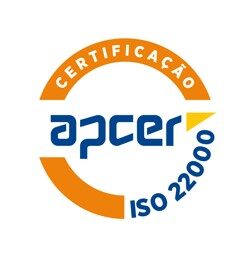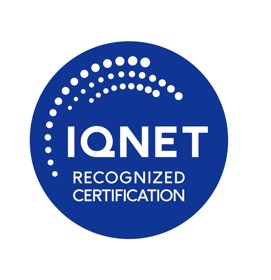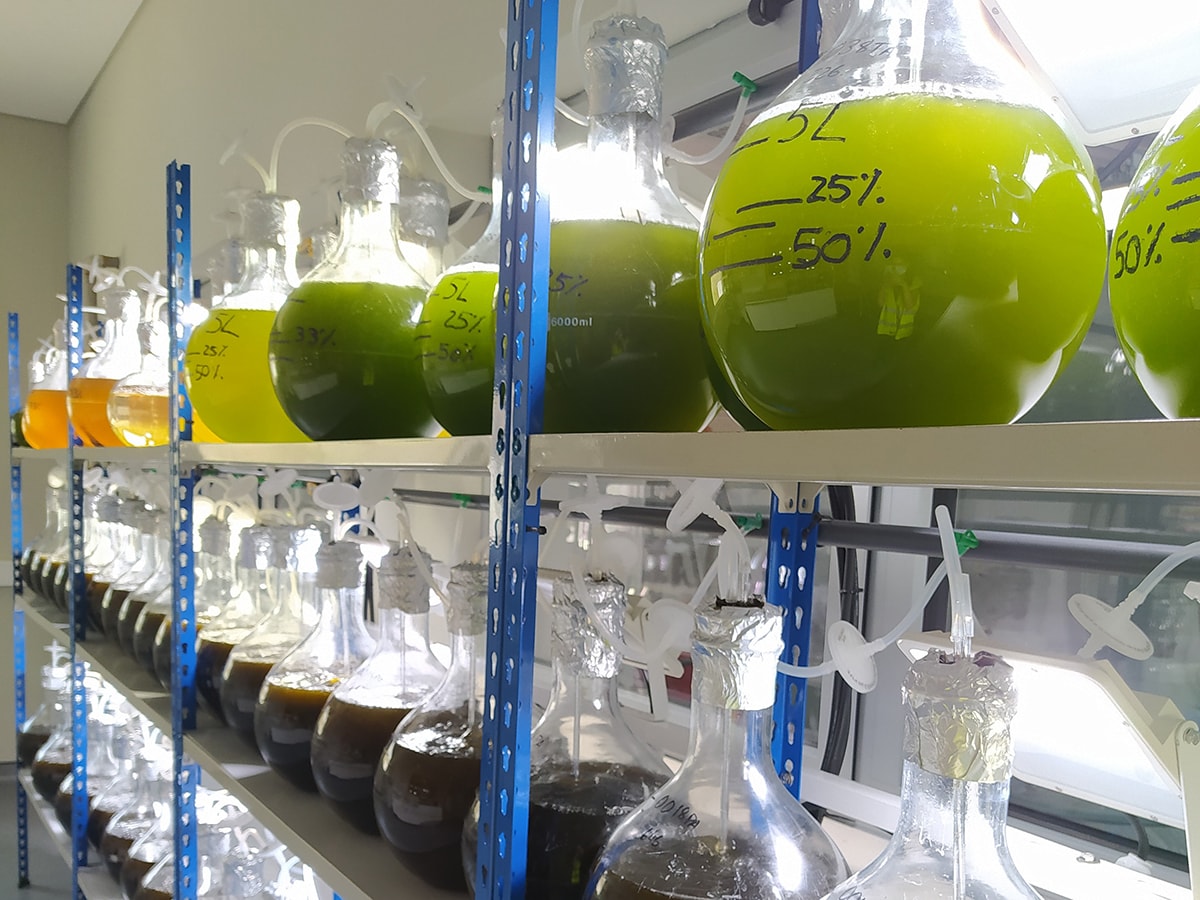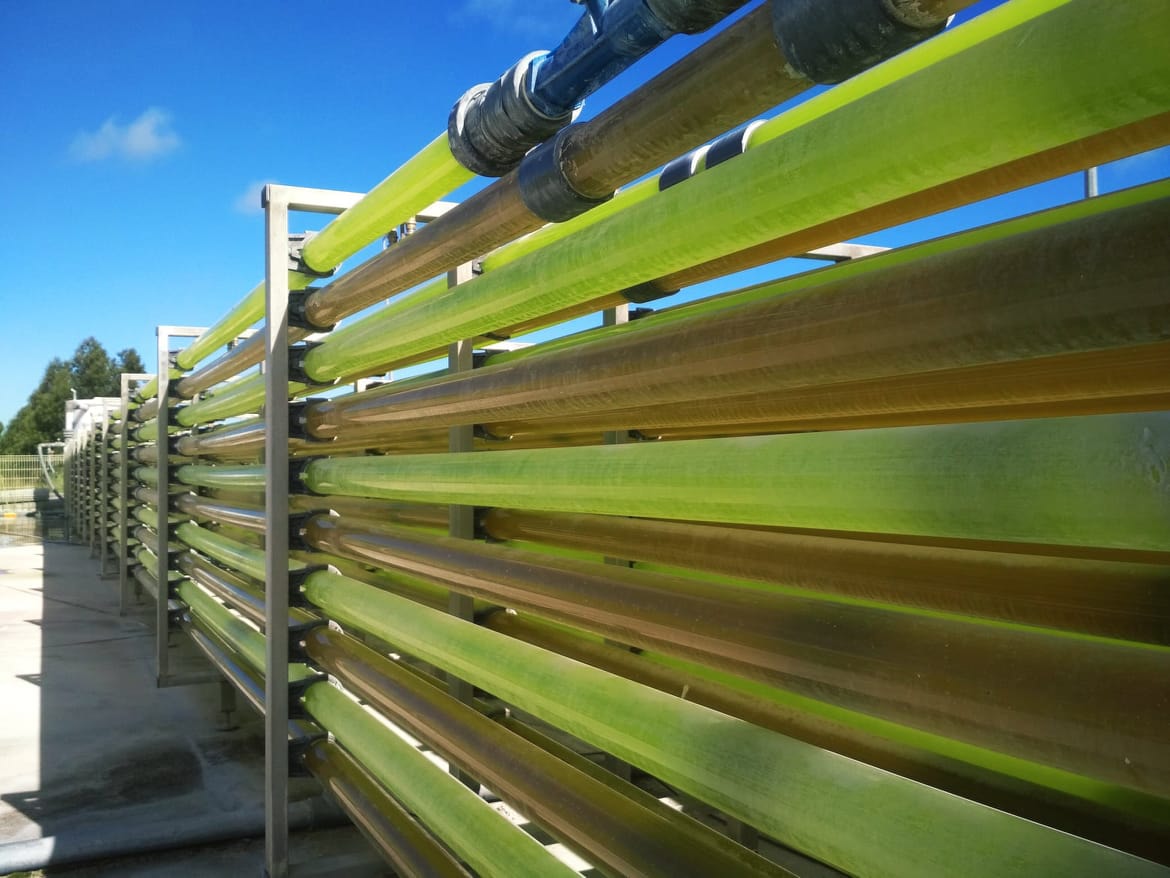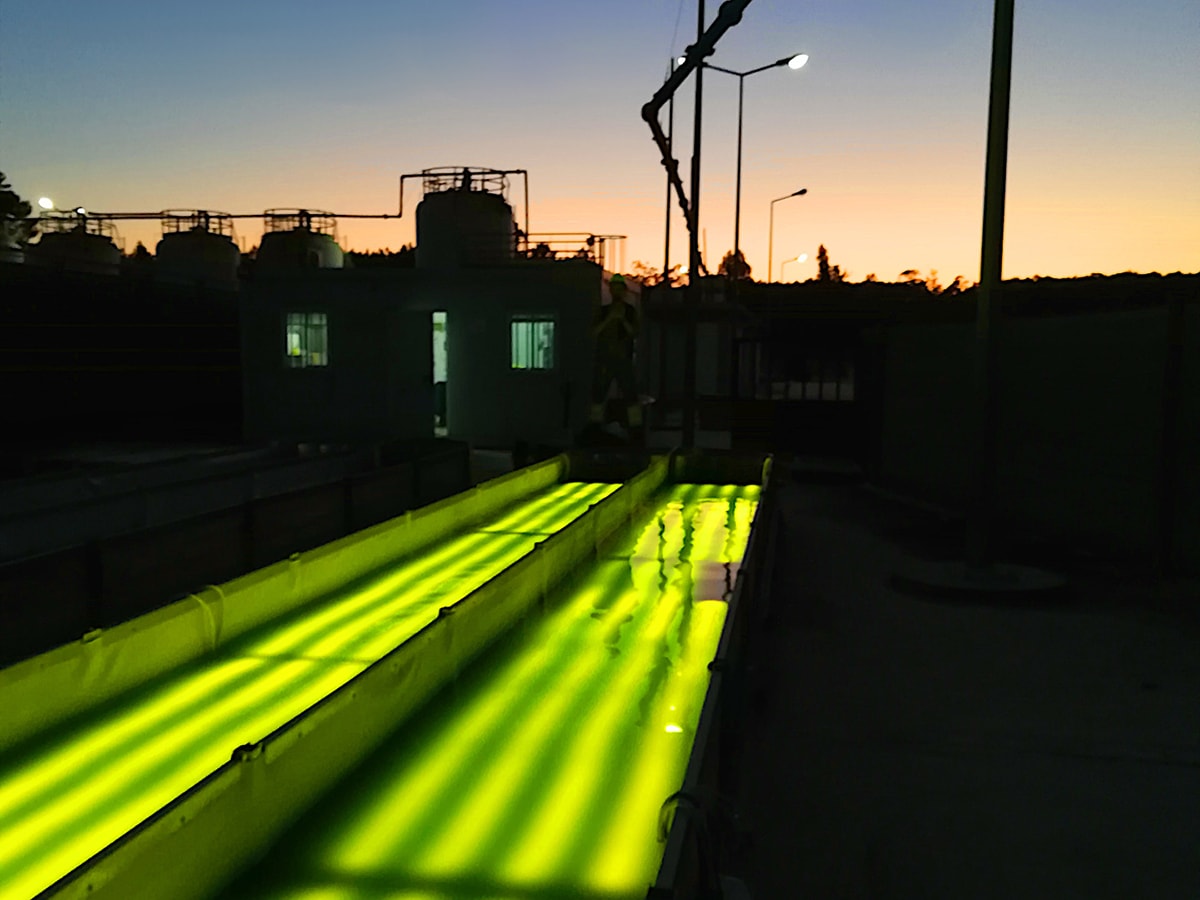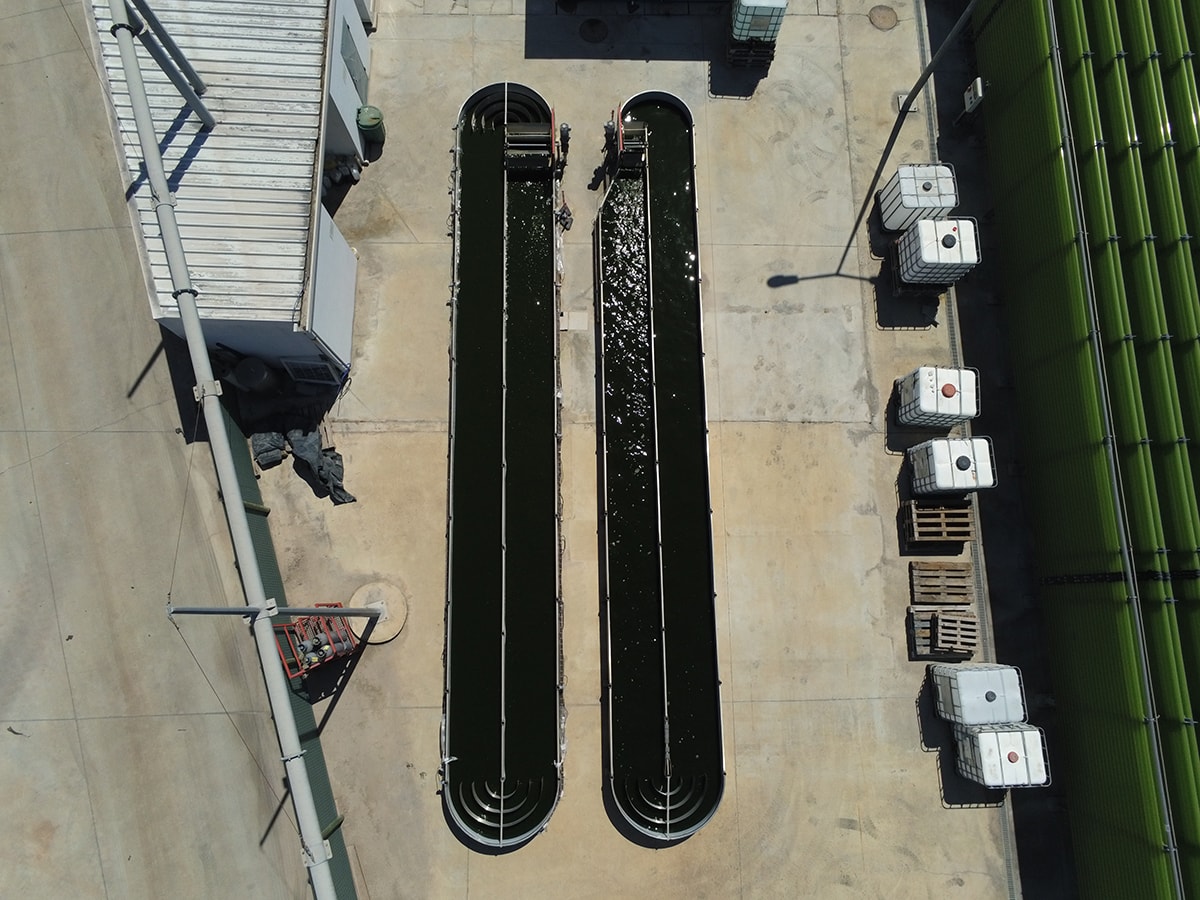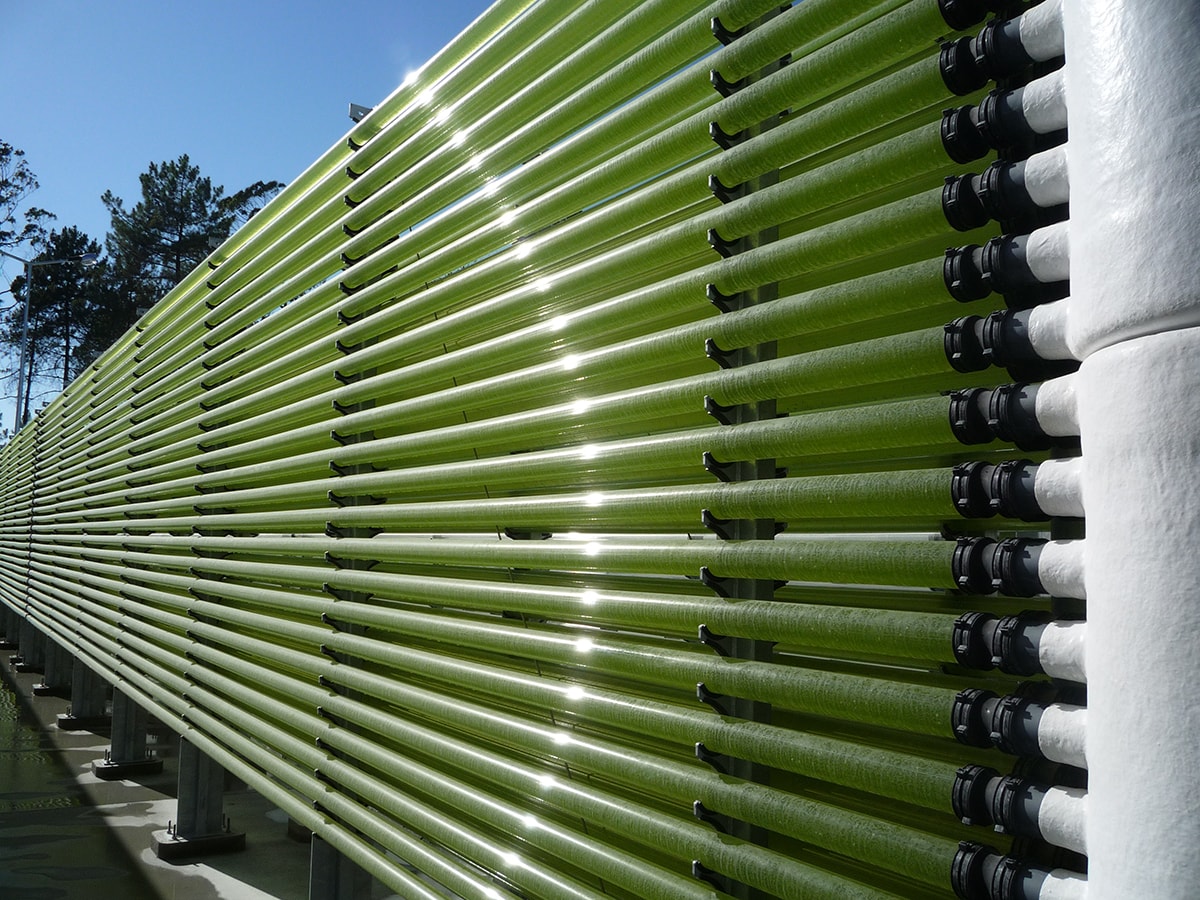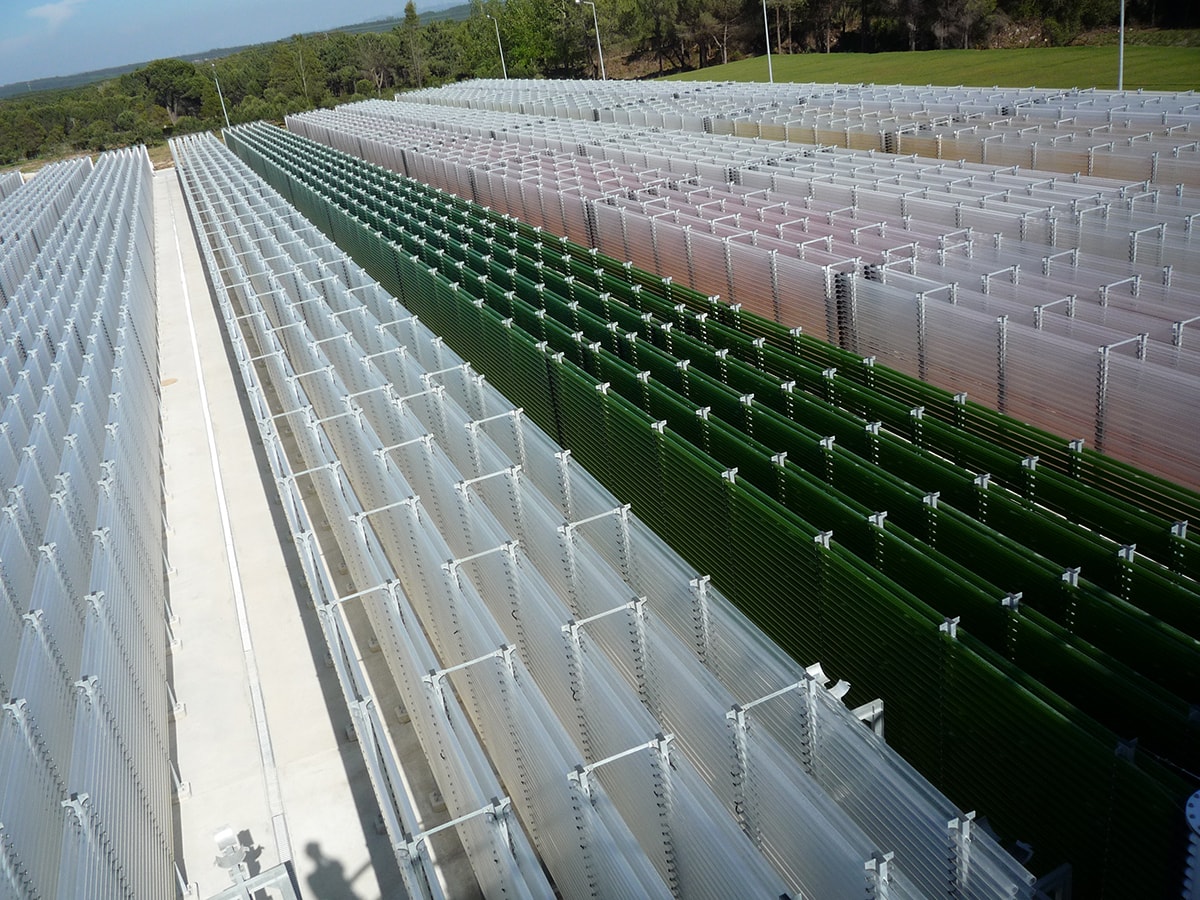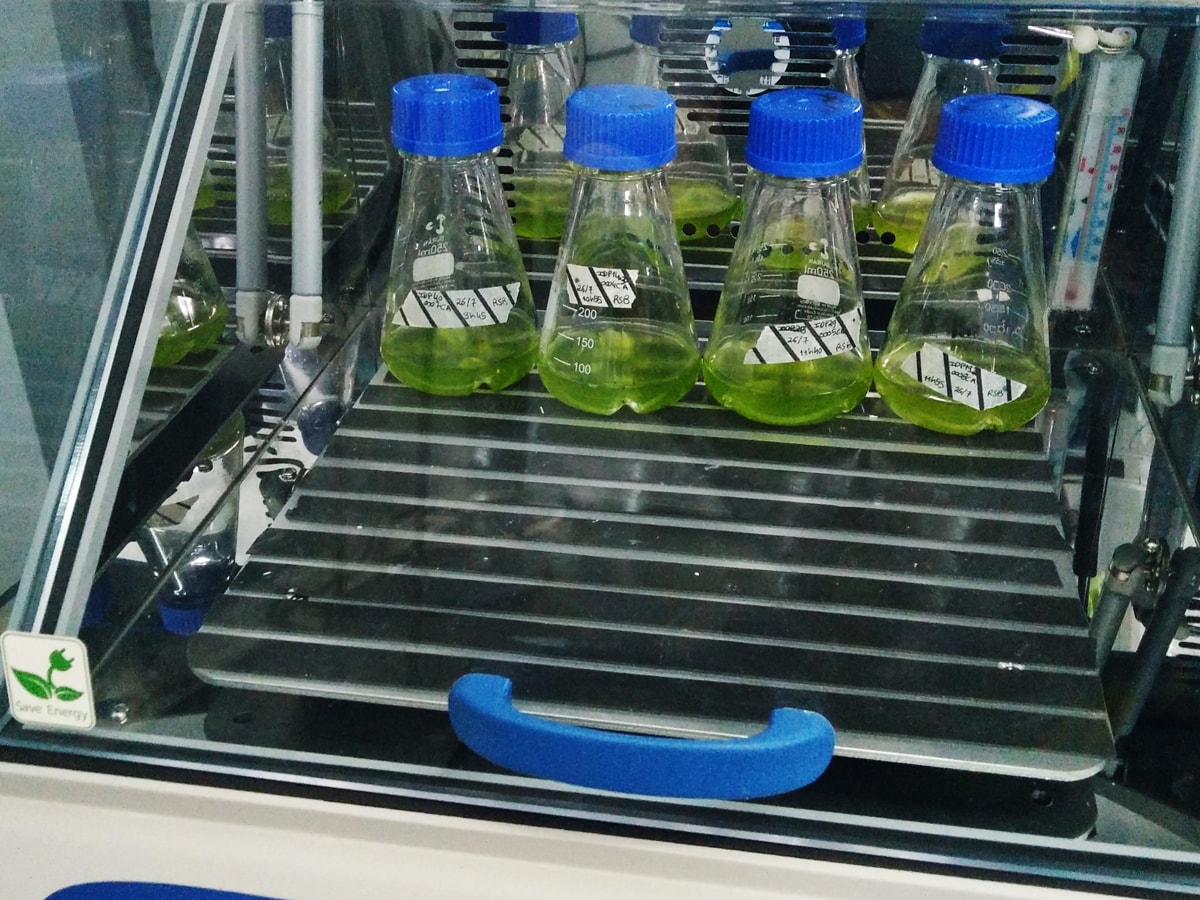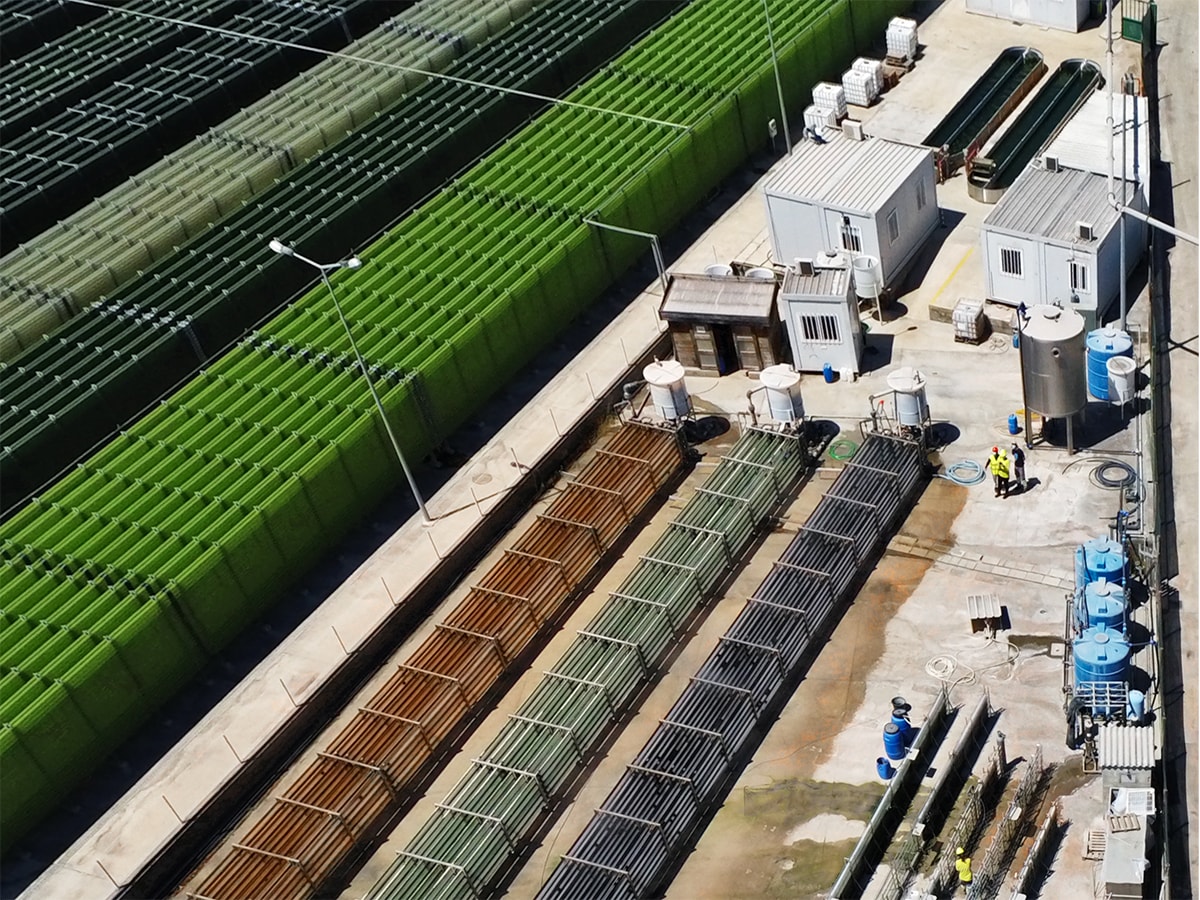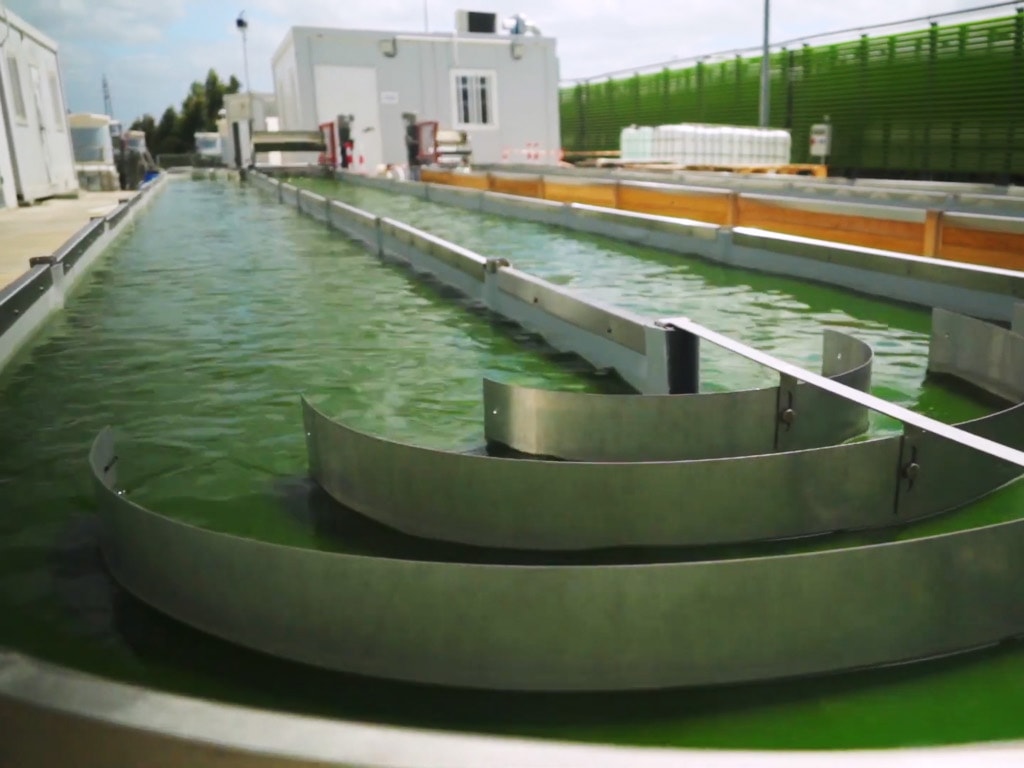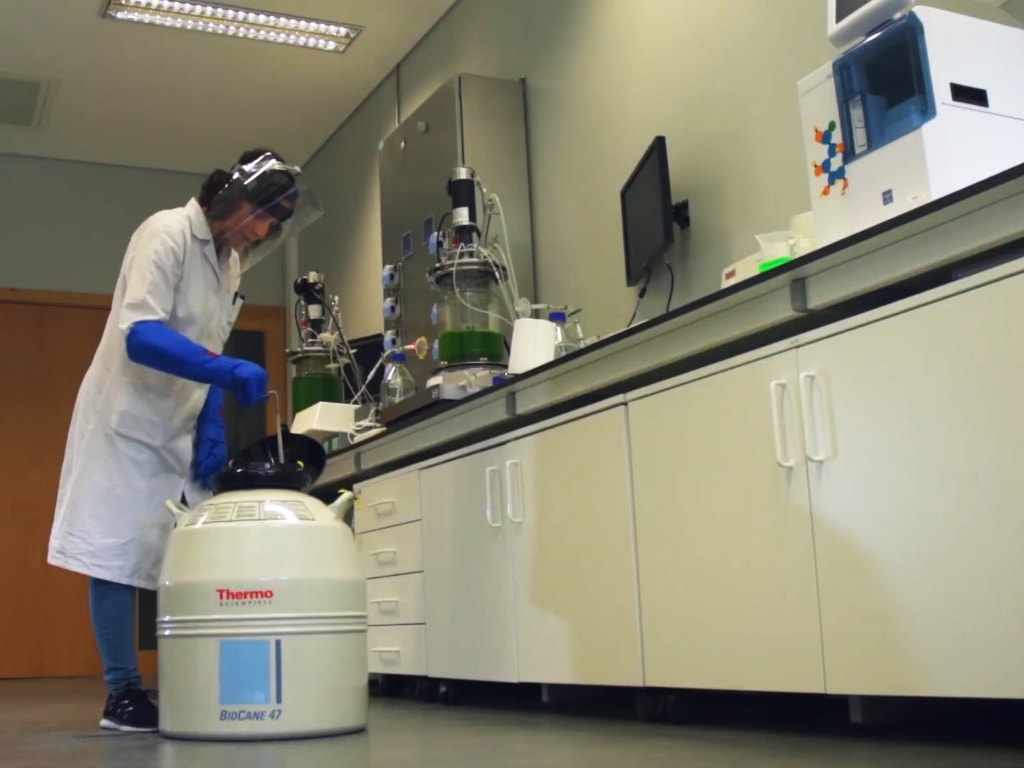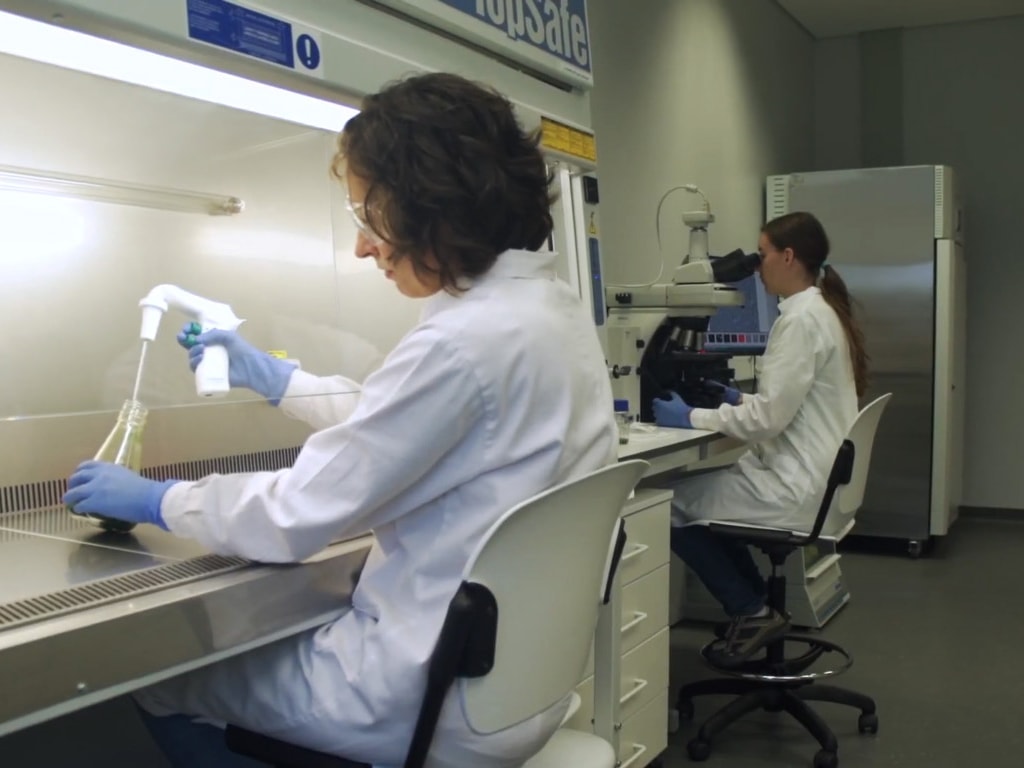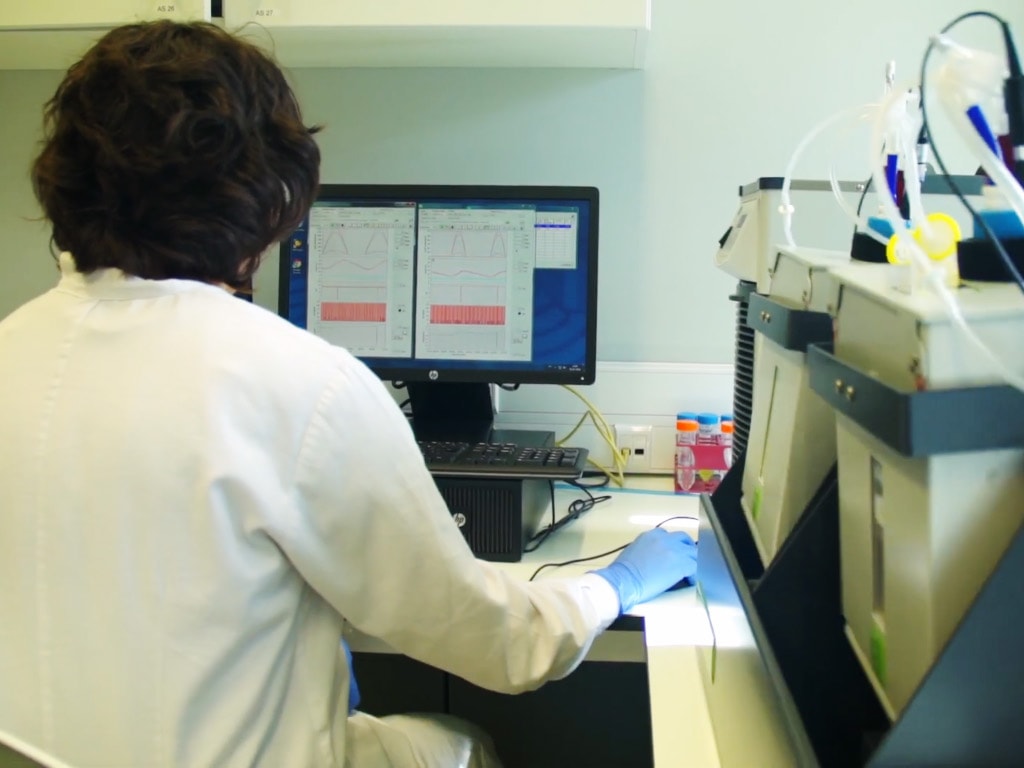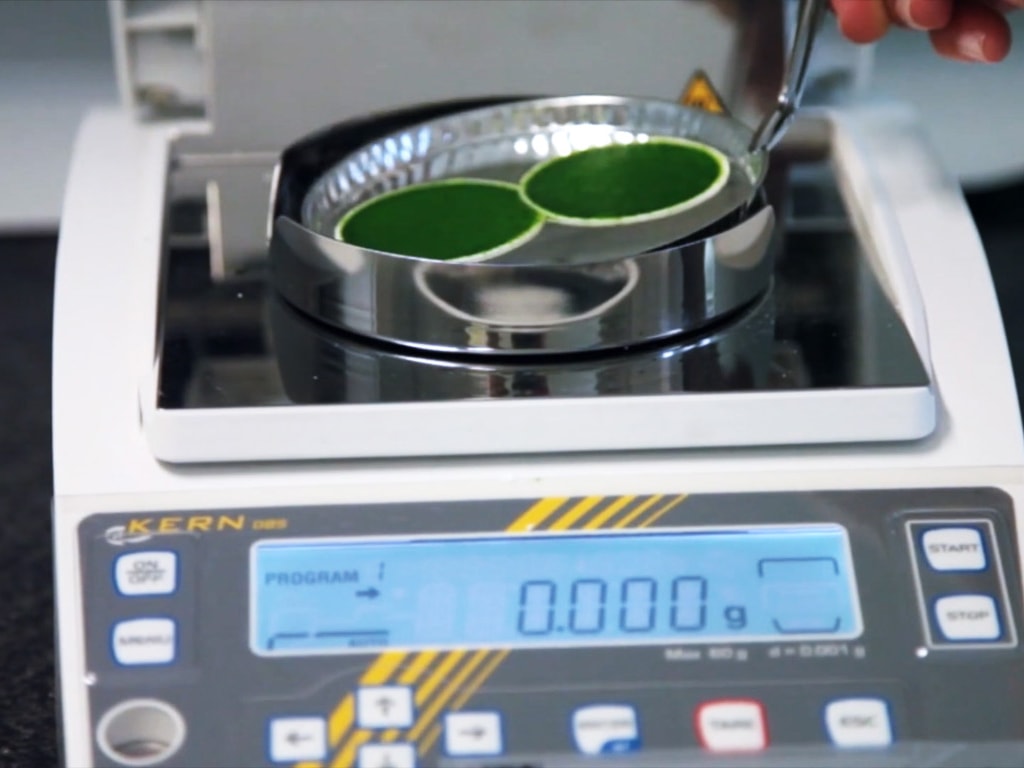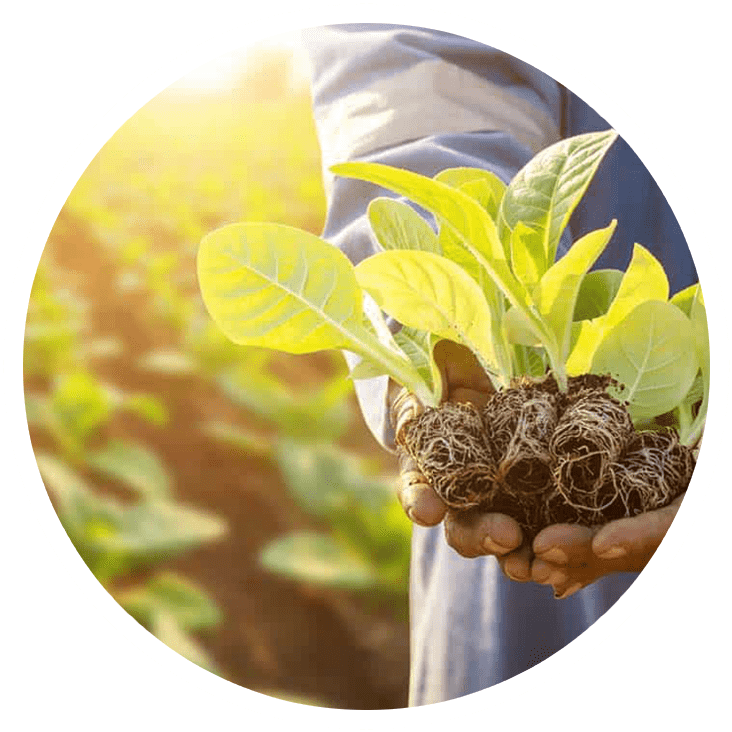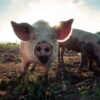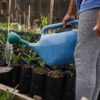R&D
The R&D Department is focused both on optimizing all aspects of microalgae production and the improvement of the biochemical and functional properties of the final products. All development efforts are aimed to answer the specific needs of Allmicroalgae’s business and research partners.
Our Research & Development
Our research team’s laboratories are specifically designed for autotrophic and heterotrophic experiments, from culture rooms to lab-scale reactors. The equipment necessary for chemical and biological control of the experimental cultures is also available in-house: laminar flow cabinets, environmental chamber, light and fluorescent optical microscopes, a continuous chemical analyser, among others. There is also a pilot-scale facility destined for outdoor experiments, with flat-panels, raceway ponds, and tubular photobioreactors, ranging from 50 to 3500L.
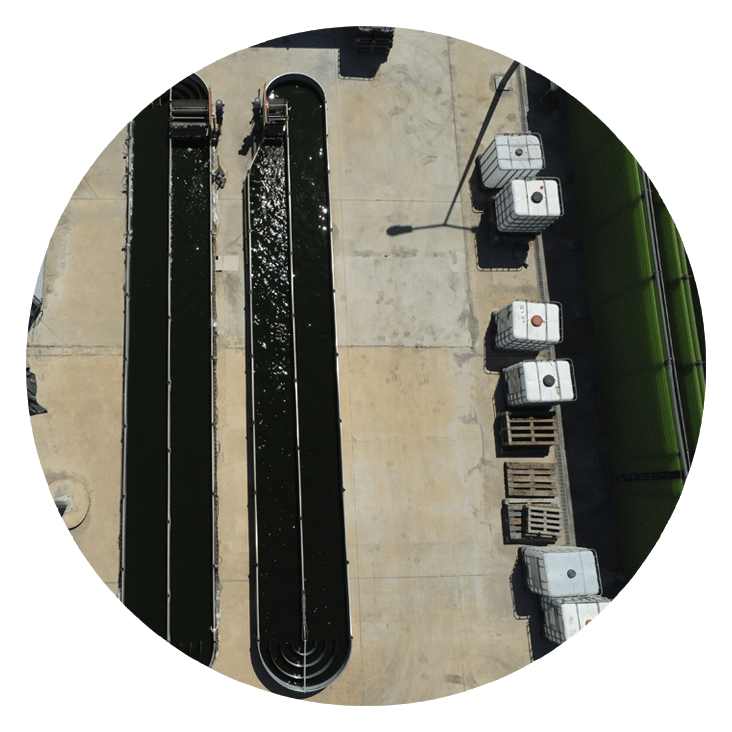

Our Research & Development
Our research team’s laboratories are specifically designed for autotrophic and heterotrophic experiments, from culture rooms to lab-scale reactors. The equipment necessary for chemical and biological control of the experimental cultures is also available in-house: laminar flow cabinets, environmental chamber, light and fluorescent optical microscopes, a continuous chemical analyser, among others. There is also a pilot-scale facility destined for outdoor experiments, with flat-panels, raceway ponds, and tubular photobioreactors, ranging from 50 to 3500L.
Meet Our Research Facility
Follow our Latest Publications
February 2023
Response Surface Methodology for the Novel Microalga Chlorococcum amblystomatis
January 2023
Lipidomic Characterization and Antioxidant Activity of Macro- and Microalgae Blend
December 2022
Micro- and macroalgae blend modulates the mucosal and systemic immune responses of European seabass (Dicentrarchus labrax) upon infection with Tenacibaculum maritimum
December 2022
Multivariable optimization process of heterotrophic growth of Chlorella vulgaris
December 2022
Evaluation of the fertilizer potential of Chlorella vulgaris and Scenedesmus obliquus grown in agricultural drainage water from maize fields
November 2022
Nannochloropsis oceanica microalga feeding increases long-chain omega-3 polyunsaturated fatty acids in lamb meat
October 2022
Se-enrichment of Chlorella vulgaris grown under different trophic states for food supplementation
October 2022
Gracilaria gracilis and Nannochloropsis oceanica, singly or in combination, alter the intestinal microbiota of European seabass (Dicentrarchus labrax)
September 2022
Production of a food grade extract of Chlorococcum amblystomatis rich in omega-3 lipids using ethanol assisted with ultrasound and deep characterization by lipidomics
September 2022
Bioprospecting antibiotic properties in photodynamic therapy of lipids from Codium tomemtosum and Chlorella vulgaris
June 2022
Chrysotila pseudoroscoffensis as a source of high-value polar lipids with antioxidant activity: A lipidomic approach
June 2022
Algae as Food in Europe: An Overview of Species Diversity and Their Application
June 2022
Random Mutagenesis as a Promising Tool for Microalgal Strain Improvement towards Industrial Production
June 2022
Chlorella vulgaris Extracts as Modulators of the Health Status and the Inflammatory Response of Gilthead Seabream Juveniles (Sparus aurata)
April 2022
Bioactive Hydrolysates from Chlorella vulgaris: Optimal Process and Bioactive Properties
April 2022
Effects of outdoor and indoor cultivation on the polar lipid composition and antioxidant activity of Nannochloropsis oceanica and Nannochloropsis limnetica: A lipidomics perspective
March 2022
Effects of LED lighting on Nannochloropsis oceanica grown in outdoor raceway ponds
December 2021
Potential Anti-Obesity, Anti-Steatosis, and Anti-Inflammatory Properties of Extracts from the Microalgae Chlorella vulgaris and Chlorococcum amblystomatis under Different Growth Conditions
November 2021
Freeze-dried Nannochloropsis oceanica biomass protects eicosapentaenoic acid (EPA) from metabolization in the rumen of lambs
November 2021
Food grade extraction of Chlorella vulgaris polar lipids: A comparative lipidomic study
October 2021
Ethanol Extraction of Polar Lipids from Nannochloropsis oceanica for Food, Feed, and Biotechnology Applications Evaluated Using Lipidomic Approaches
October 2021
Nannochloropsis oceanica harvested using electrocoagulation with alternative electrodes – An innovative approach on potential biomass applications
September 2021
Microalgal Lipid Extracts Have Potential to Modulate the Inflammatory Response: A Critical Review
September 2021
Nannochloropsis oceanica as a Sustainable Source of n-3 Polyunsaturated Fatty Acids for Enrichment of Hen Eggs
June 2021
Microalgae as Sustainable Bio-Factories of Healthy Lipids: Evaluating Fatty Acid Content and Antioxidant Activity
July 2021
Nutritional value, antimicrobial and antioxidant activities of micro- and macroalgae, single or blended, unravel their potential use for aquafeeds
April 2021
Effects of Chlorella vulgaris, Nannochloropsis oceanica and Tetraselmis sp. supplementation levels on in vitro rumen fermentation
March 2021
Chemoplasticity of the polar lipid profile of the microalgae Chlorella vulgaris grown under heterotrophic and autotrophic conditions
March 2021
Microalgal biomasses have potential as ingredients in microdiets for Senegalese sole (Solea senegalensis) post-larvae
March 2021
Operation Regimes: A Comparison Based on Nannochloropsis oceanica Biomass and Lipid Productivity
February 2021
Polar lipidomic profile shows Chlorococcum amblystomatis as a promising source of value-added lipids
October 2020
The Polar Lipidome of Cultured Emiliania huxleyi: A Source of Bioactive Lipids with Relevance for Biotechnological Applications
July 2020
Use of technological processing of seaweed and microalgae as strategy to improve their apparent digestibility coefficients in European seabass (Dicentrarchus labrax) juveniles
May 2020
Exploring the potential of seaweed Gracilaria gracilis and microalga Nannochloropsis oceanica, single or blended, as natural dietary ingredients for European seabass Dicentrarchus labrax
May 2020
Foods with microalgae and seaweeds fostering consumers health: a review on scientific and market innovations
May 2020
Isolation and Characterization of Novel Chlorella Vulgaris Mutants With Low Chlorophyll and Improved Protein Contents for Food Applications
May 2020
Incorporation of defatted microalgal biomass (Tetraselmis sp. CTP4) at the expense of soybean meal as a feed ingredient for juvenile gilthead seabream (Sparus aurata)
April 2020
Isolation, Identification and Biotechnological Applications of a Novel, Robust, Free-living Chlorococcum (Oophila) amblystomatis Strain Isolated from a Local Pond
Abril 2020
Lab-Scale Optimization of Aurantiochytrium sp. Culture Medium for Improved Growth and DHA Production
March 2020
Nannochloropsis oceanica Cultivation in Pilot-Scale Raceway Ponds—From Design to Cultivation
March 2020
Development of an Organic Culture Medium for Autotrophic Production of Chlorella vulgaris Biomass
January 2020
Reserve, structural and extracellular polysaccharides of Chlorella vulgaris: A holistic approach
January 2020
Health benefits and bioavailability of marine resources components that contribute to health – what’s new?
September 2019
Nutritional Potential and Toxicological Evaluation of Tetraselmis sp. CTP4 Microalgal Biomass Produced in Industrial Photobioreactors
September 2019
Heterotrophy as a tool to overcome the long and costly autotrophic scale-up process for large scale production of microalgae
August 2019
The effects of different extraction methods of lipids from Nannochloropsis oceanica on the contents of omega-3 fatty acids
May 2019
Growth performance, biochemical composition and sedimentation velocity of Tetraselmis sp. CTP4 under different salinities using low-cost lab- and pilot-scale systems
February 2019
Industrial production of Phaeodactylum tricornutum for CO2 mitigation: biomass productivity and photosynthetic efficiency using photobioreactors of different volumes
October 2018
Microalgal Bioactive Compounds Including Protein, Peptides, and Pigments: Applications, Opportunities, and Challenges During Biorefinery Processes
July 2018
Nannochloropsis oceanica, a novel natural source of rumen-protected eicosapentaenoic acid (EPA) for ruminants
March 2018
Scale-up and large-scale production of Tetraselmis sp. CTP4 (Chlorophyta) for CO2 mitigation: from an agar plate to 100-m3 industrial photobioreactors
November 2017
Valorizing fish canning industry by-products to produce ω-3 compounds and biodiesel
January 2017
Mass balance analysis of carbon and nitrogen in industrial scale mixotrophic microalgae cultures
May 2016
Lipidomic Approaches towards Deciphering Glycolipids from Microalgae as a Reservoir of Bioactive Lipids
Research Projects
The R&D team is involved in several national and international projects, whose focus is in line with the company’s priorities. These projects represent the core of the research activities, allowing the production of several thesis and peer-reviewed papers, and collaborations with universities, companies, and research centers.

ALGAESOLUTIONS – Solutions to improve growth, induce high value metabolites and detect contaminants to produce novel algal products
The main objectives of the ALGAESOLUTIONS project are to provide innovative solutions to common problems of algal producers by increasing the productivity, quality and market value of the biomass produced and to develop five products with high commercial value: AllPhaeo+, AllNanno+, AtlanticNori+, ConchoNori+, CleanCulture.


PERFORMALGAE – Establishing high performance algae industrial cultures for the production of biostimulants and functional feeds
PERFORMALGAE key objective is to develop microalgae strains targeting relevant metabolites to obtain novel and highly valued products for agriculture biostimulants and aquafeed functional ingredients. In particular, interesting phenotypes will be improved through high-throughput screening techniques leading to the development of products with biostimilant and biopesticide activity and also a product for functional aquafeed (antixodiant, immunostimulant).


ZeroW – Systemic Innovations Towards a Zero Food Waste Supply Chain
ZeroW gathers a multidisciplinary team of 46 partners from 17 European countries to understand and address system lock-in effects, to test innovations, to foster innovation scale-up and to ensure a just transition, all focused on reducing food loss/waste to half by 2030 and enabling conditions for near-zero by 2050.

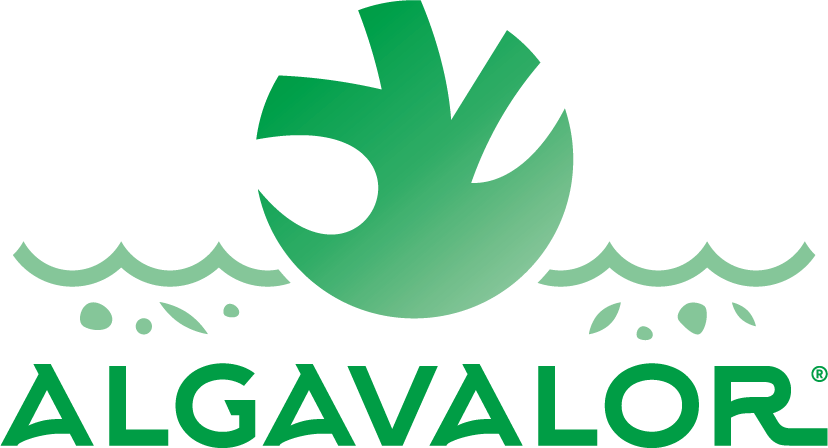
AlgaValor – Microalgae: Integrated production, valorization of biomass and its diverse applications
The project AlgaValor has as main objective the integrated production of microalgae and the valorisation of its biomass and extracts in different applications. The project contemplates the development and release of new products to the market in the food, feed, cosmetics and biofertilizers field.


Magnificent – Microalgae as a green source for nutritional ingredients for food/feed and ingredients for cosmetics by cost-effective new technologies
The overall objective of the project is to develop and validate a sustainable and economically feasible new value chain based on cultivation and processing, with the aim to transform microalgae biomass into valuable ingredients for food, aquafeed and cosmetics applications. Development and validation of new product formulations of microalgae are also included.


SIMBA – Sustainable innovation of microbiome applications in food system
The objective of SIMBA project is to harness complex soil and marine microbial communities for the sustainable production of food. SIMBA focus on two interconnected food chains: crop production and aquaculture.


PROFUTURE – Microalgae protein ingredients for the food and feed of the future
ProFuture aims to set the basis for market uptake of innovative, healthy and sustainable food and feed products reformulated with Spirulina, light Chlorella, Tetraselmis chui and Nannochloropsis oceanica. A multi-factor approach intends to boost microalgae biomass production and processing, by reducing energy/water consumption and the carbon footprint.

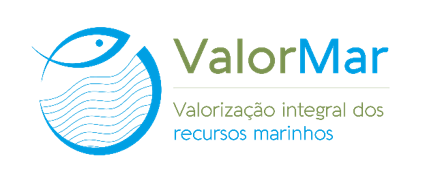
ValorMar – Full valorisation of marine resources: potential, technological innovation and new applications
This project has as basis the economy of the sea. It focuses on the valorisation of marine resources and aggregates entities of the Portuguese National Scientific System with relevant companies along the value chains. ValorMar intends to promote technological development and validate it through pilot demonstrations.


AlgaCO2 – Industrial cultivation of microalgae as a green strategy for atmospheric CO2 sequestration
ALGACO2 aimed at producing novel microalgae strains betting on their ability to capture CO2 and use it as a source to generate interesting compounds. A screening of potencial species was performed and scale up cultivation of the best candidates was undertaken, to validate production at industrial scale.

Partners
Allmicroalgae works close to several partners in order to extend the expertise and guarantee good quality of the generated knowledge and the final product.


















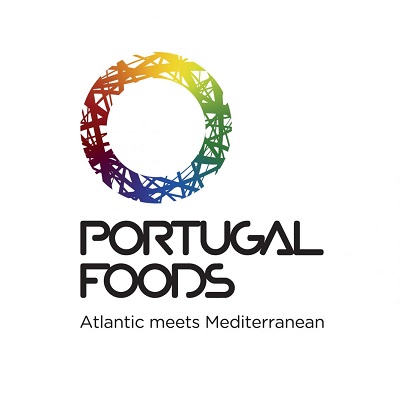
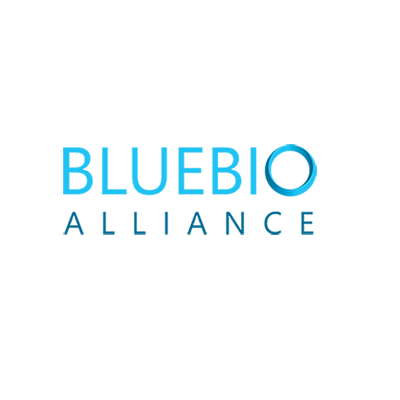
Meet Our Products
Our products were designed to present microalgae solutions, with high quality standards to the most demanding markets, focusing on dietary supplements, food, feed and agro applications.



